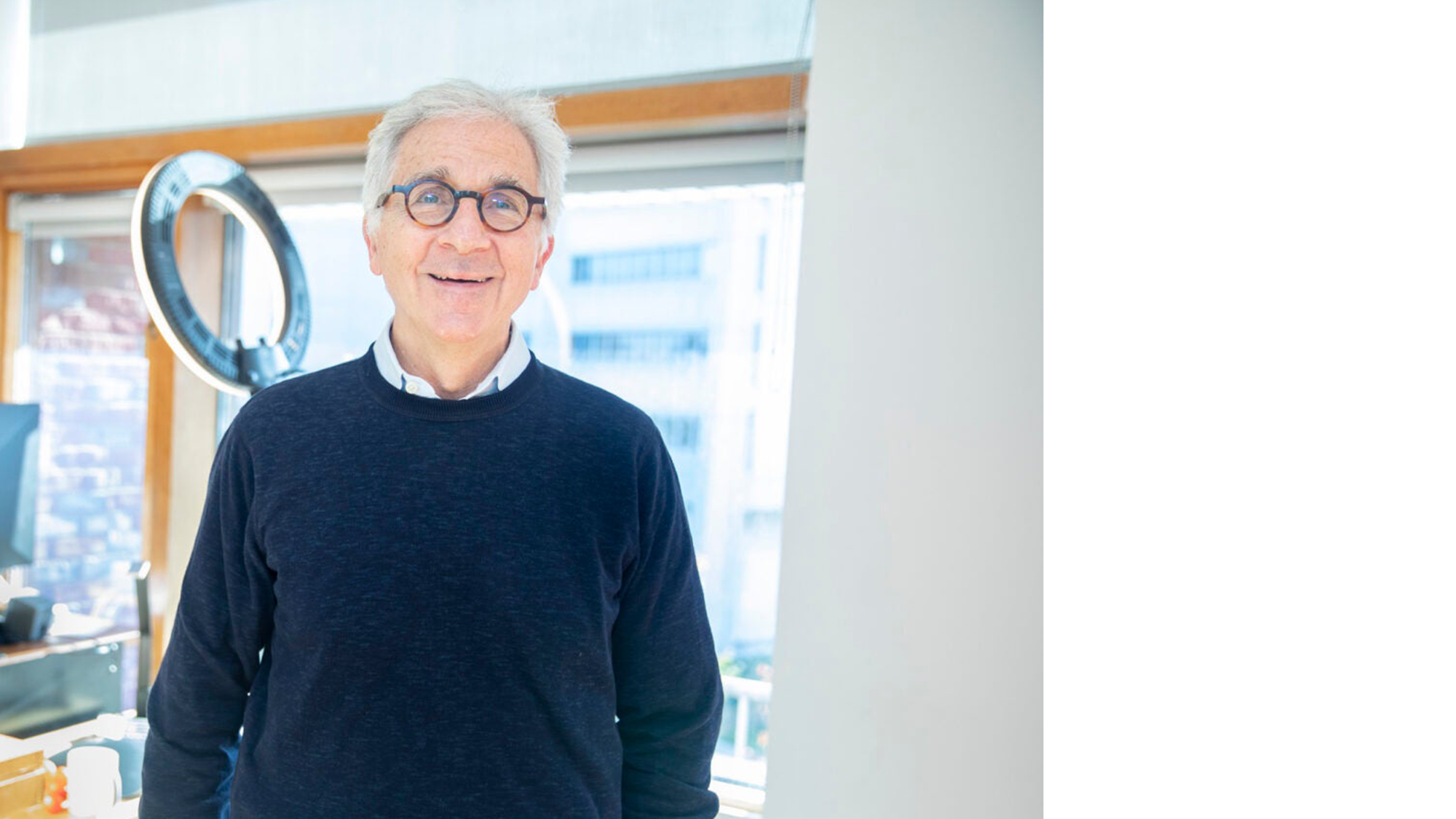
"If this works, it’s going to change the medical treatment for people with diabetes. Instead of injecting insulin, patients will get cells that will be their own insulin factories. It’s a new kind of medicine."
—Doug Melton
Vertex Pharmaceuticals announced in Oct. 2021 that its investigational stem-cell-derived replacement therapy, based on Harvard innovations from Melton's lab, was helping the first patient in a Phase 1/2 clinical trial.
Image credit: Kris Snibbe/Harvard Staff Photographer.

Float like a butterfly, squish like a RoboBee
Soft artificial muscles developed in the lab of David Clarke and the Harvard MicroRobotics Laboratory enable this microrobot to flap and hover — and survive repeated collisions.
Credit: Harvard MicroRobotics Lab/Harvard SEAS
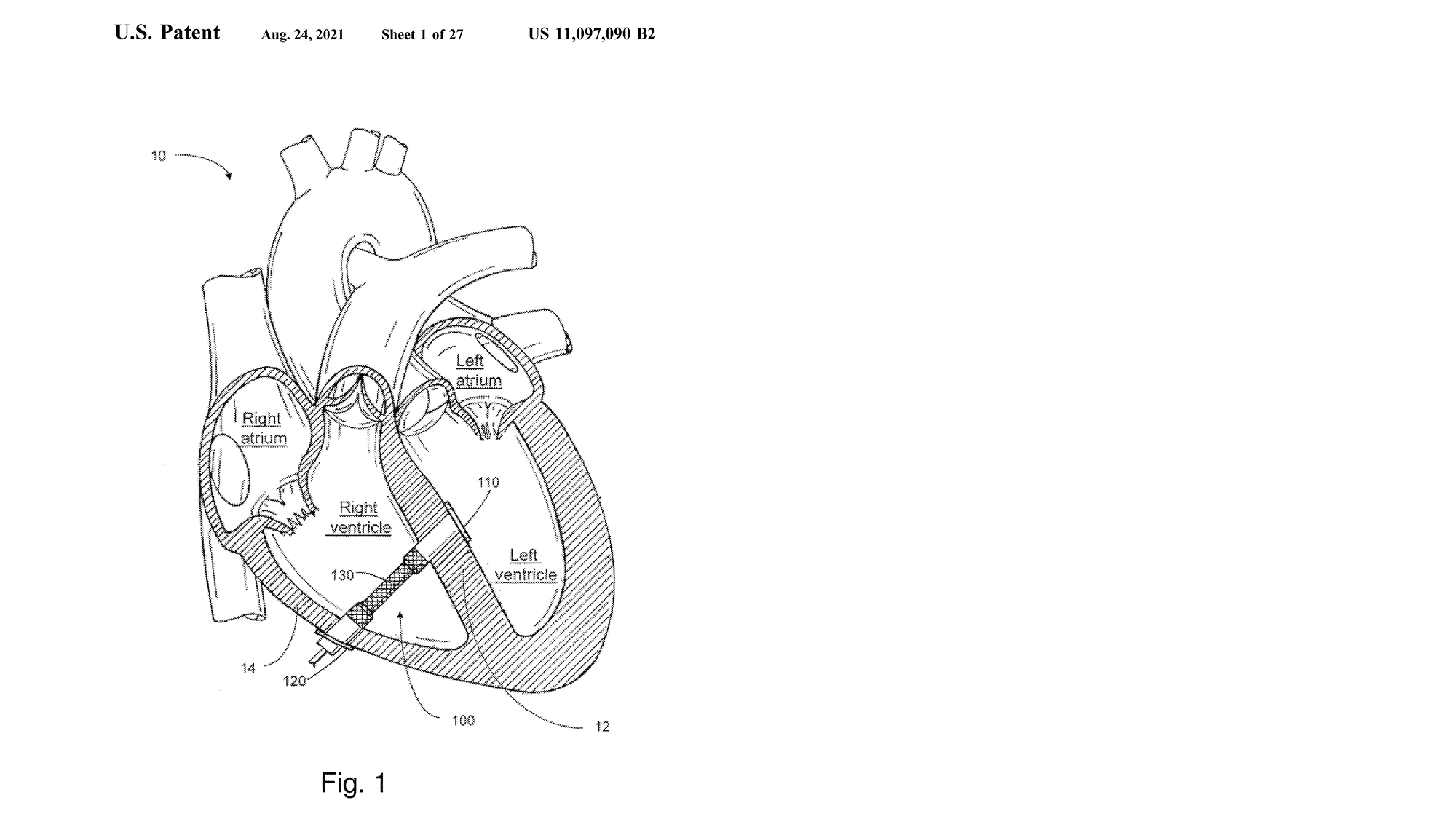
The heartbeat of innovation
We filed 180 new patent applications in FY21, and during the same period Harvard researchers reported 383 new innovations.
Year over year, it adds up: Harvard currently holds 4,465 patents, each one representing a novel and useful invention that could change the world.
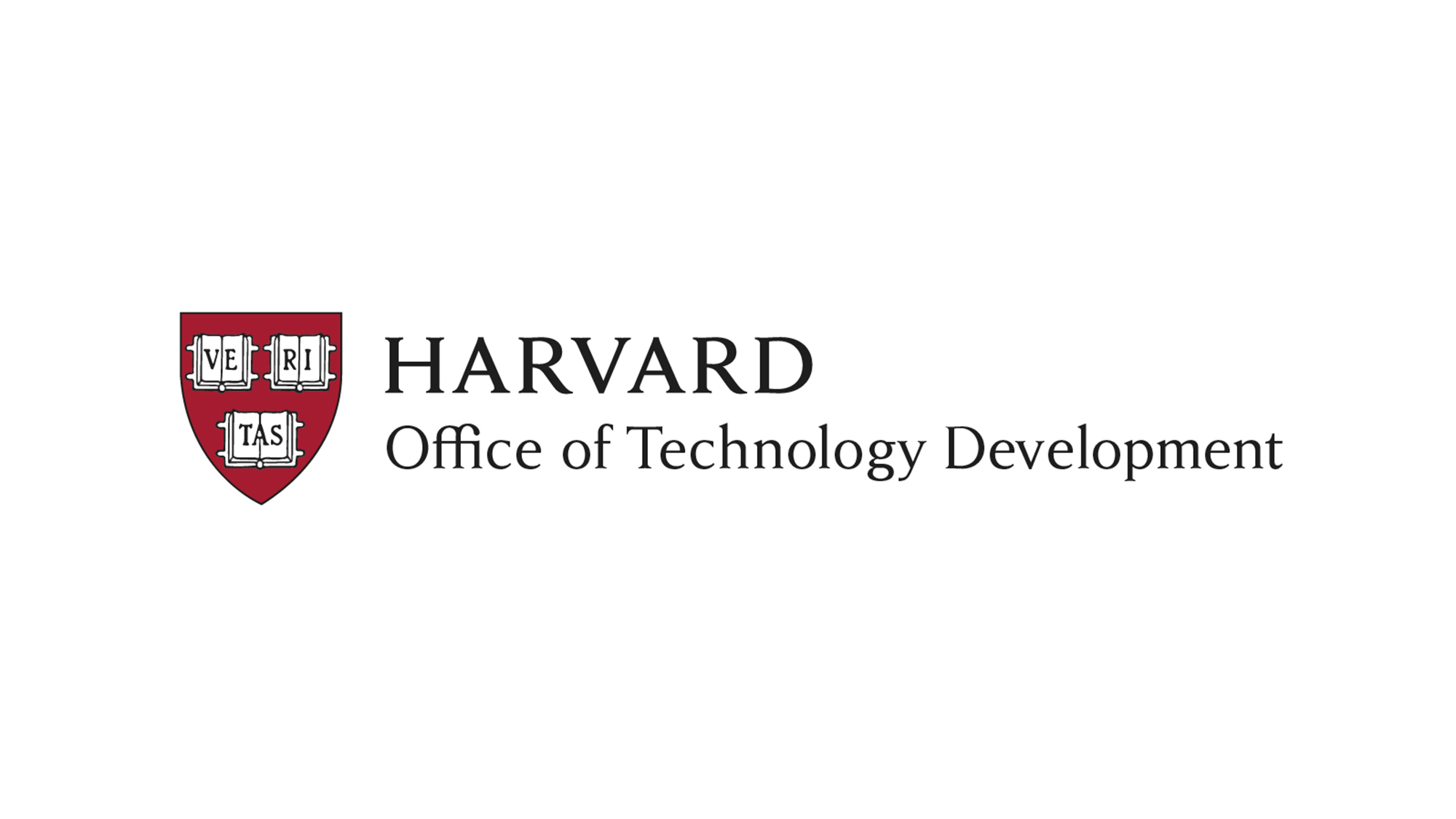
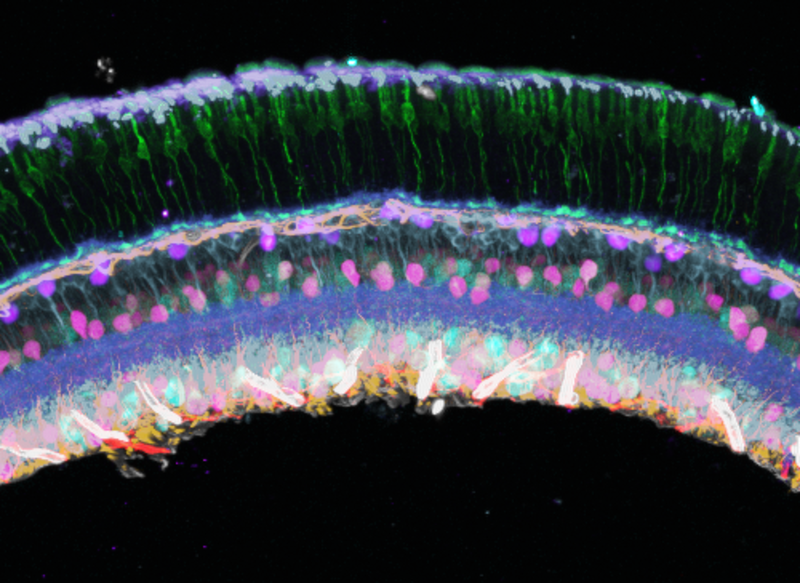
Lighting up proteins
A visualization tool called Immuno-SABER, developed in Peng Yin's lab, enables scientists to visualize multiple proteins in tissues at once.
A cryosection of mouse retina. Credit: Wyss Institute at Harvard University.
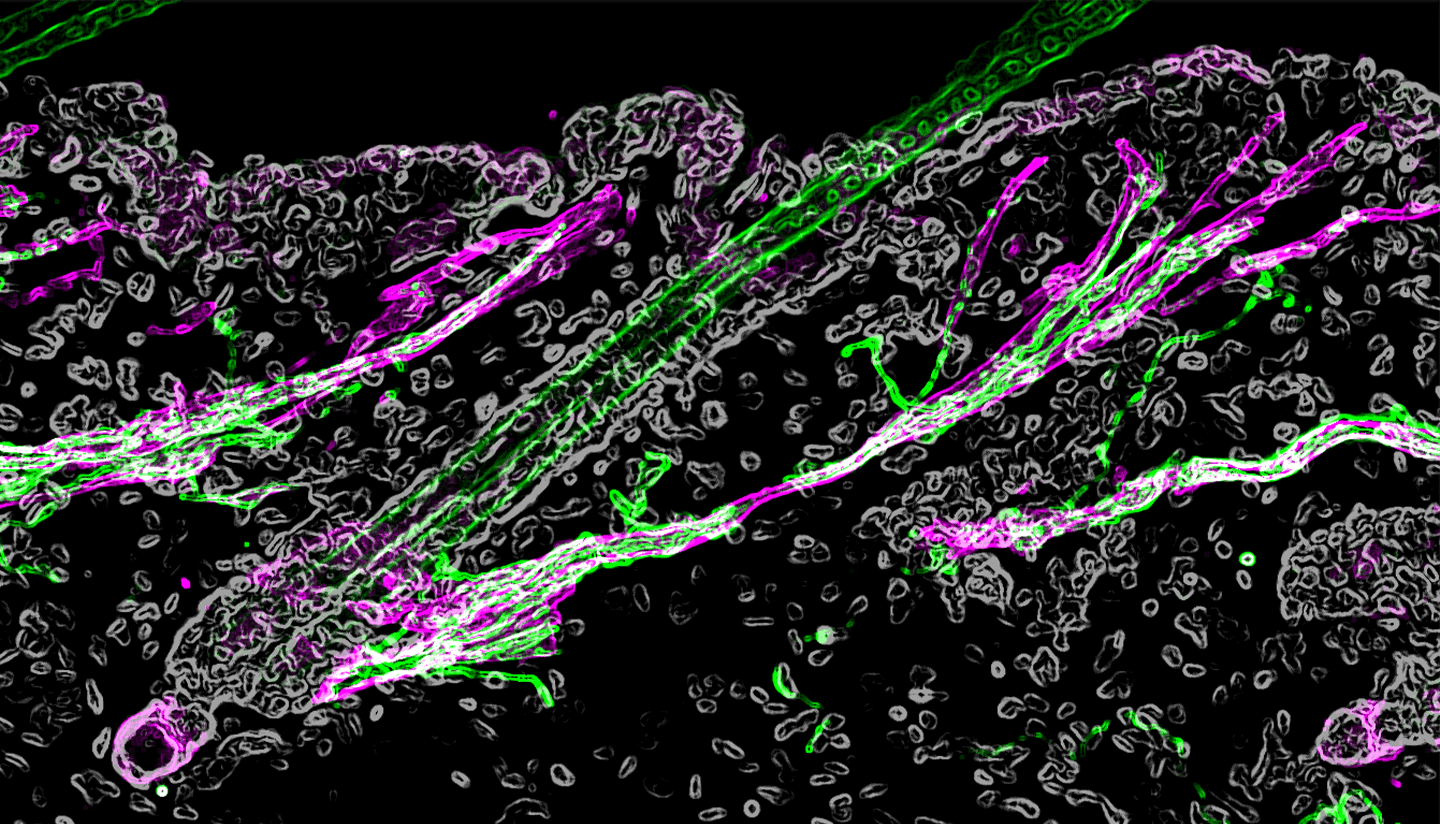
Goosebumps make us warmer, long term
Harvard researchers have shown that the cell types causing goosebumps also regulate stem cells that regenerate hair follicles and hair.
The hair follicle under the microscope, with the sympathetic nerve in green and the muscle in magenta. Credit: Ya-Chieh Hsu laboratory, Harvard University.
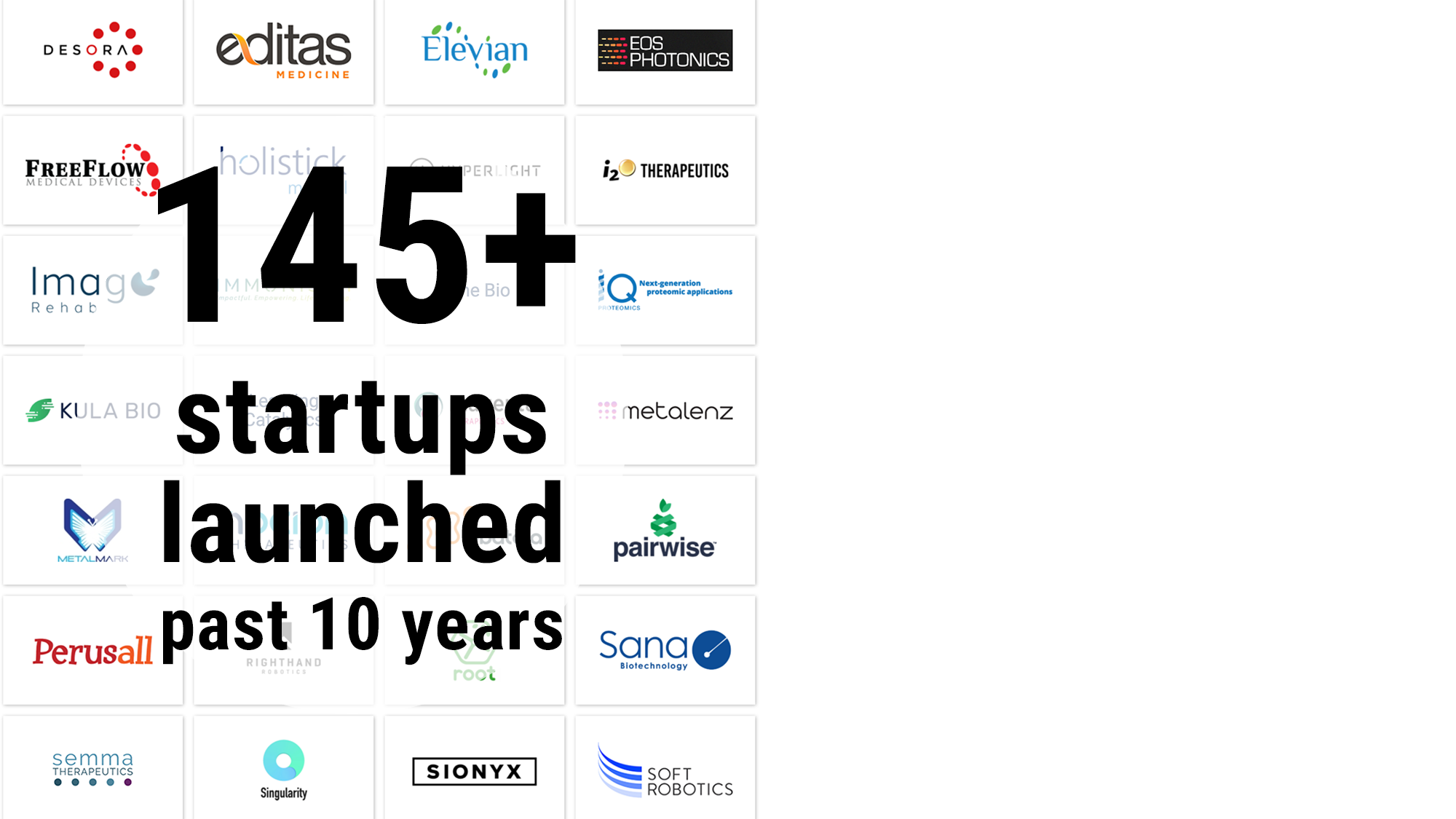
Technology-driven ventures
Harvard innovations are enabling new companies to address challenges in education, health care, food and agriculture, energy, sustainability, high-tech goods, and much more.


A mammoth effort
In collaboration with startup Colossal Biosciences, researchers in the lab of Prof. George Church at HMS are advancing techniques in multiplexed genome editing.
Their audacious goal: to create an elephant–woolly mammoth hybrid.
Asian elephants. Image credit: Shutterstock.
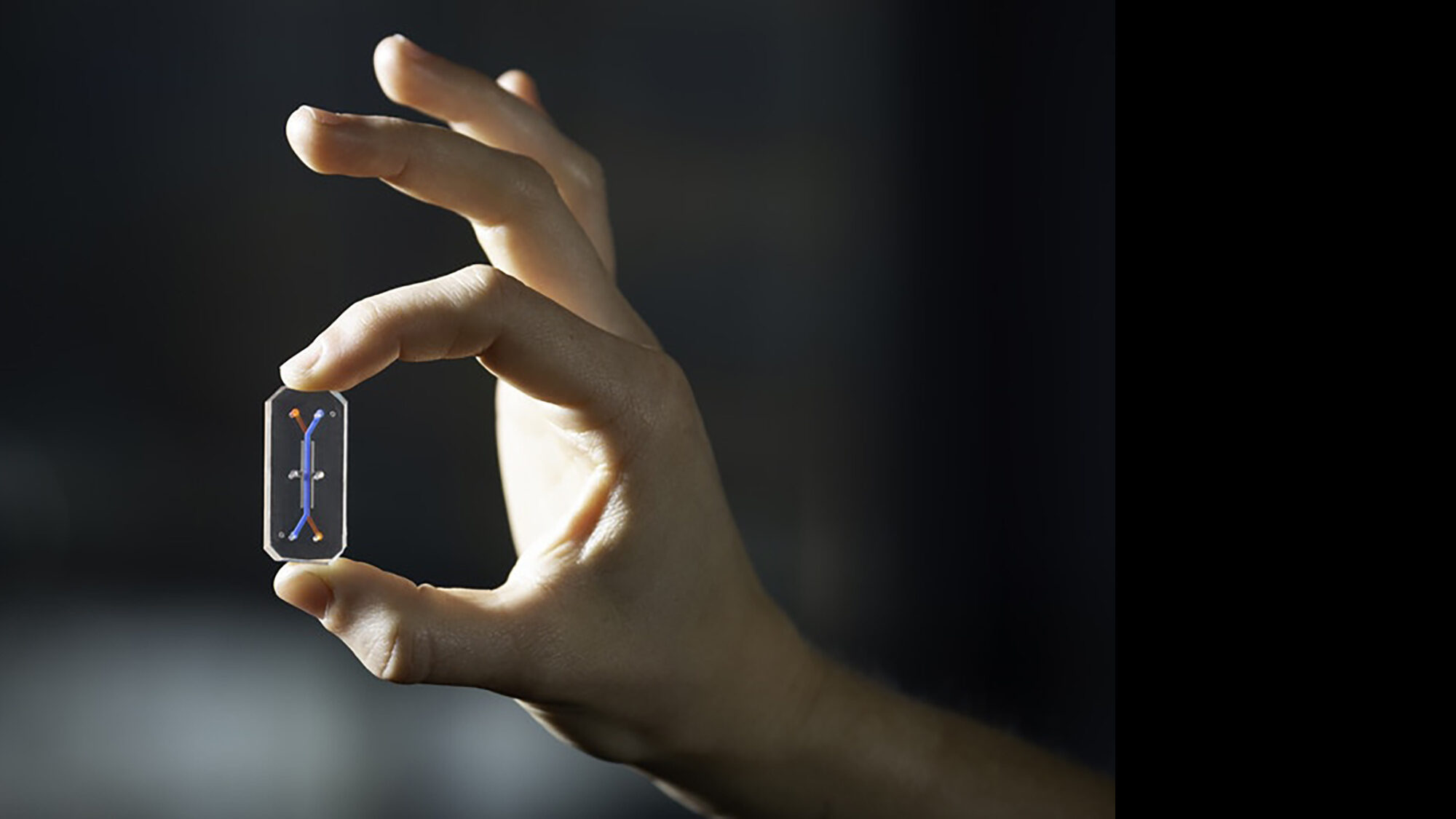
Better drug discovery
Organs-on-chips developed at the Wyss Institute mimic the physiology of whole organs. This Liver-Chip may enable industry scientists to test toxicity responses to drug compounds.
Credit: Wyss Institute at Harvard University.
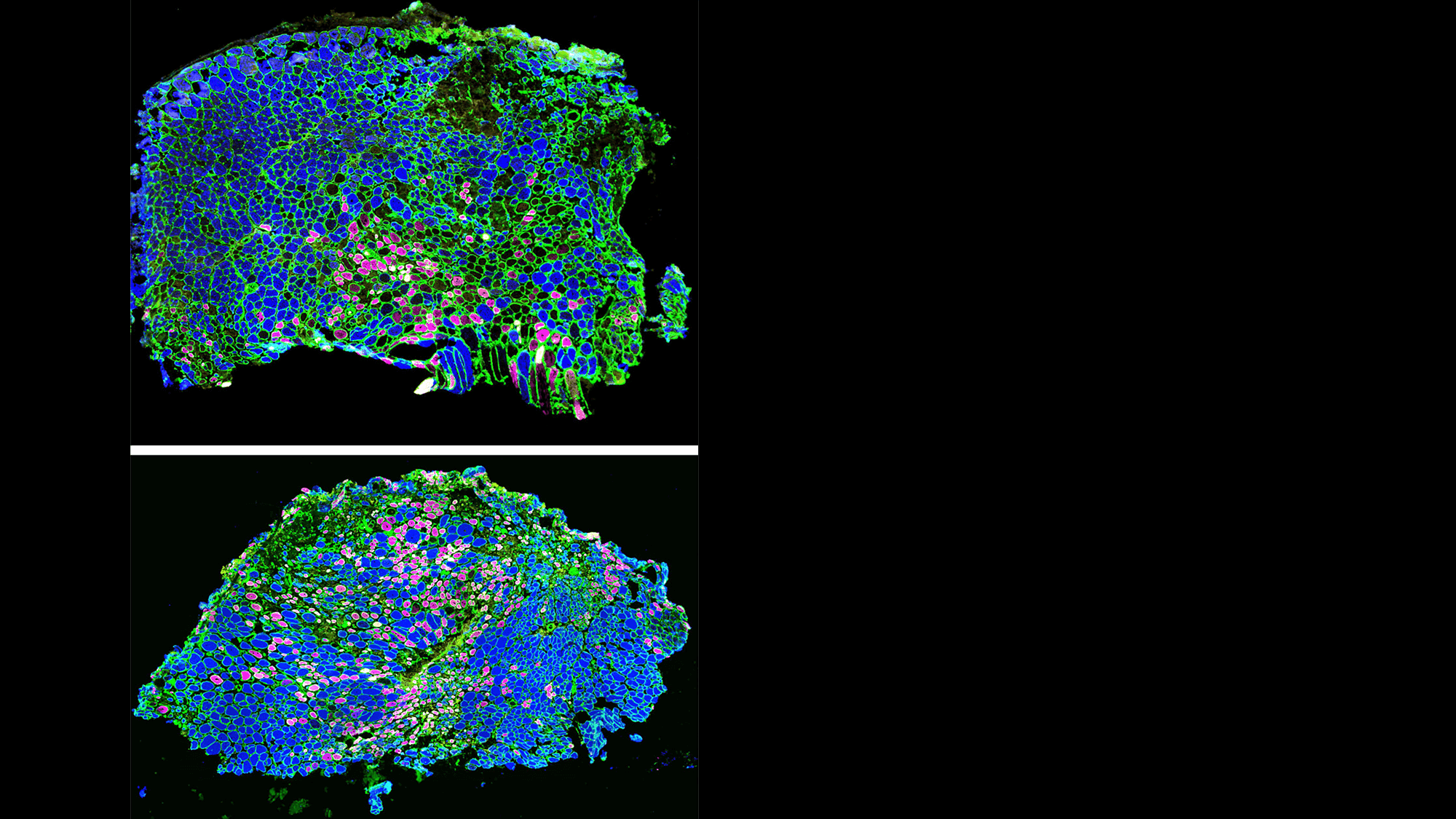
"Our work shows a very clear connection between mechanical stimulation and immune function. This has promise for regenerating a wide variety of tissues ... and can also be used in patients with diseases that prevent the use of drug-based interventions."
—Bo Ri Seo, postdoc in the lab of Prof. David Mooney
Injured muscle (bottom) treated with mechanotherapy (top) better resembles the composition of healthy muscle. The findings imply that treatment with massage helps restore proper muscle function.
Credit: Wyss Institute at Harvard University
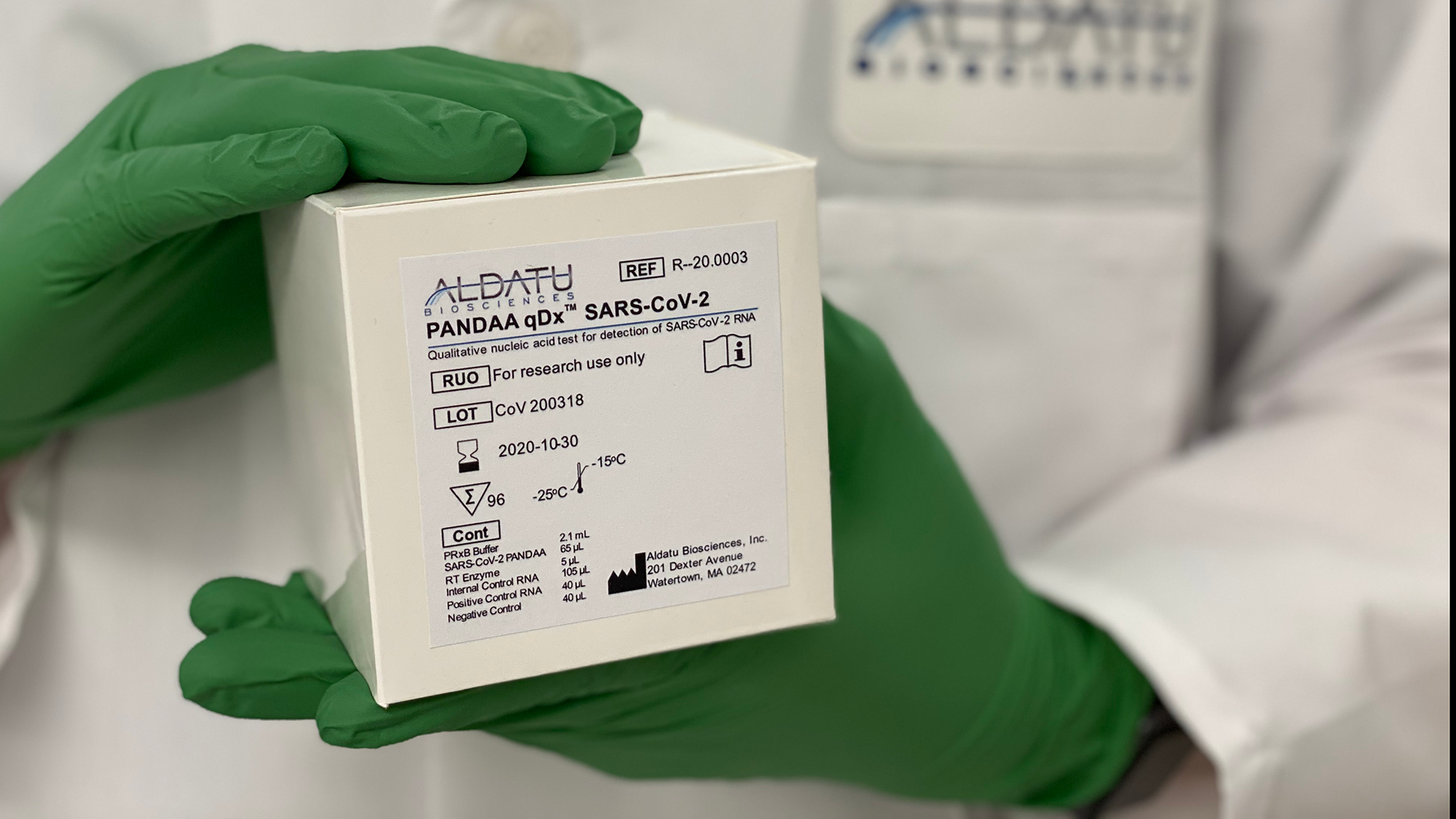
Innovations at work
The University has 992 active technology licenses with 656 industry partners who are developing Harvard researchers' innovations into life-changing products and services.
Data as of July 2021. Image credit: Aldatu Biosciences, a Harvard licensee.

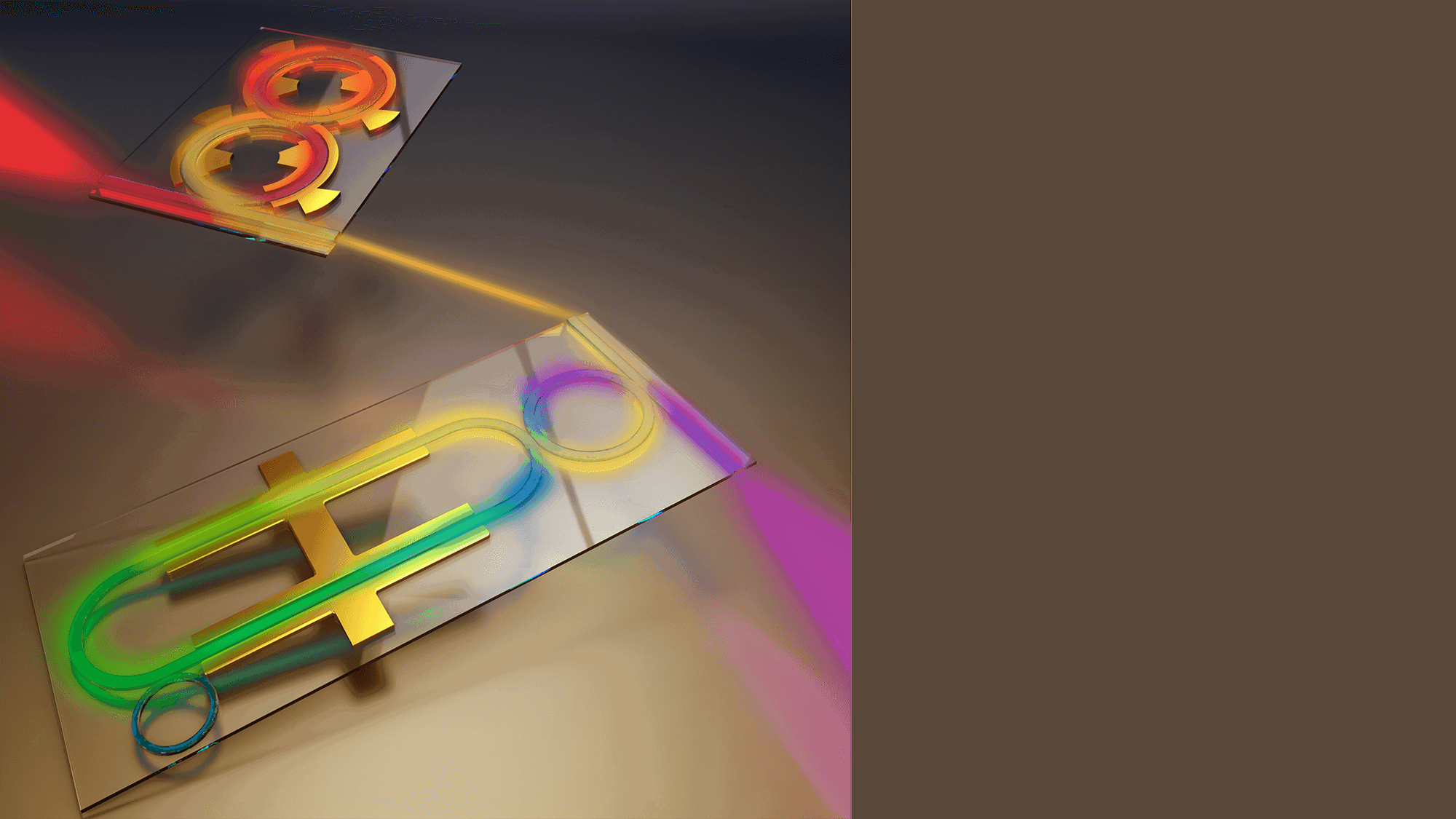
Enabling next-gen quantum computers, networks
Harvard researchers are advancing the development of highly efficient, on-chip frequency shifters—important components in emerging photonic quantum computers.
Illustration credit: Second Bay Studios/Harvard SEAS, based on innovations from the lab of Prof. Marko Lončar.